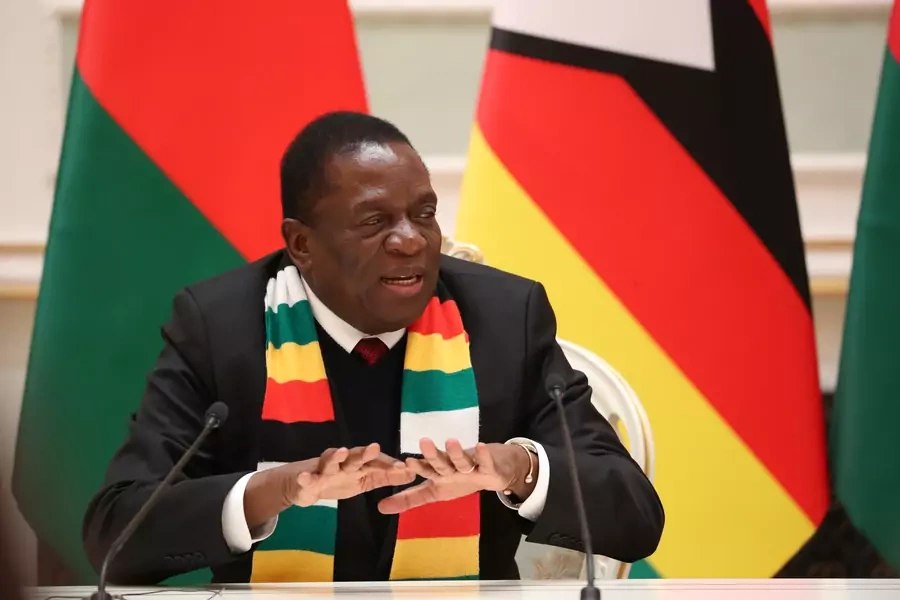Zimbabwe Is in Crisis. Its President Is Sending His Thoughts and Prayers.

This week’s alarming developments in Zimbabwe have prompted a curious response from President Emmerson Mnangagwa. A massive popular protest against fuel price increases, fed by broader frustration with an economy crippled by a currency crisis and decades of mismanagement, tipped into violence as security forces responded with a heavy hand, arresting over 600 people, leaving eight dead, and dozens injured.
Mnangagwa, who departed for Russia just as the price increase came into effect, delivered his remote response to the turmoil in his country in the form of a tweet sent Wednesday morning—a particularly strange choice given that his government cut internet access countrywide in response to the protests, threatening draconian legal action against service providers who do not comply.
More on:
From Russia, where he aims to drum up investment—particularly in the diamond mining sector, which is dominated by the Zimbabwean security services—Mnangagwa has plans for additional travel to Belarus, Kazakhstan, and Azerbaijan before heading to Davos. The contrast between his jet-setting investment pitch and media photographs of brutalized Zimbabweans and burning roadblocks is jarring—one wonders what sort of investors are eager to jump into this particular market. However, the substance of his message home is even stranger. He expresses his sadness, sends thoughts and prayers to those affected by violence, and assures readers that he understands their concerns. But if he feels a sense of urgency about the meltdown in his country, or a responsibility to rein in the security services brutalizing civilians, he keeps these feelings well-concealed. Instead, he writes as if violence has been perpetrated only by troublemakers abusing the freedoms he allows—ignoring the fact that the security forces under his control have responded to unarmed protesters with live ammunition, have systematically terrorized people in their homes, and have rounded up activists who have had nothing to do with violence. The head of state assumes the role of passive spectator to the state-sponsored repression and resulting chaos that has his citizens living in fear.
In his testimony before the House Foreign Affairs Committee in December, Todd Moss of the Center for Global Development noted the Mnangagwa government’s enthusiasm for passive constructions—for example, acknowledging that “citizens died” when in fact innocent citizens were murdered, on camera in some cases, by Zimbabwean soldiers during post-election violence. Moss was onto something. It’s all part of the same leadership style characterized by artful omissions, willful myopia, a failure to take responsibility for the acts committed in the name of the state, and the shedding of crocodile tears.
More on:
 Online Store
Online Store